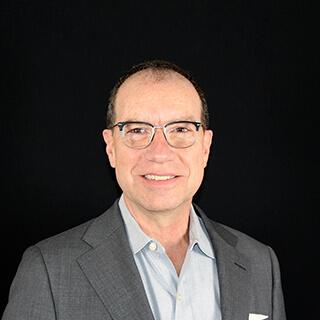What Can You Do With an Organizational Leadership and Learning Degree?

Dr. Russell Korte

Associate Professor Emeritus, Human and Organizational Learning
School: Graduate School of Education and Human Development
Contact:
Dr. Korte studies the social, cultural, and political systems that influence how people learn and work in organizational settings. These studies focus on the socialization or onboarding of newcomers to organizations and provide insights into what and how they learn when joining new organizations. The majority of this work has been focused on the professional development of engineers—including the socialization of engineering students into their higher education programs and the socialization of engineering graduates into the workplace. Internationally, Korte has studied the socialization of engineers in the U.S., Mexico, and Taiwan. Recent studies have expanded this research program to include the socialization experiences of medical students, faculty, teachers, and entrepreneurs—specifically focused on how they learn the social, cultural, and political aspects of their professional work.
Dr. Korte worked as a scholar-practitioner combining the scholarship of human and organizational learning with his experiences of work in education, business and industry. He has published on topics ranging from socialization, workplace learning, organization studies, theory, social science, and philosophy. He also works on a variety of topics supporting his students’ work on decision-making, the meaning of work, and social connectedness in school and the workplace. For several years, he has been invited to give numerous presentations of his work around the world to faculty, students, managers, and aspiring professionals beginning their careers.
Prior to joining the faculty of the George Washington University, Korte was on the faculties of the University of Illinois at Urbana-Champaign and Colorado State University. Recently, he was a visiting associate professor at National Taiwan Normal University in Taipei, Taiwan.
Ph.D., University of Minnesota
M.B.A., University of St. Thomas
B.S. in Education, St. Cloud State University
Select Presentations
Korte, R. & LeBlanc, S. (2023). Learning to practice engineering at school and work: A bilateral learning ecosystem. Proceedings of the American Society for Engineering Education Conference, 2023. Baltimore, Maryland USA.
Korte, R., Brozina, C., Jesiek, B. & Johri, A. (2023). Mediation and Maintenance in Engineering Professional Work Practices: Findings from a Utility Company. Proceedings of the American Society for Engineering Education Conference, 2023. Baltimore, Maryland USA.
Select Publications
Han, H., Korte, R., Prakash, V., & Hingle, S. (2022). Faculty experiences related to career advancement and success in academic medicine. Teaching and Learning in Medicine.
Zehr, S. M., & Korte, R. (2020). Student internship experiences: Learning about the workplace. Education + Training, 62(3), 311-324.
Korte, R., Brunhaver, S., & Zehr, S. M. (2019). The socialization of STEM professionals into STEM careers: A study of newly hired engineers. Advances in Developing Human Resources, 21(1), 92-113. DOI: 10.1177/1523422318814550.
Korte, R. (2019). Learning to practice engineering in business: The experiences of newly hired engineers beginning new jobs. In: S. Christensen, B. Delahousse, C. Didier, M. Meganck, & M. Murphy (Eds), The Engineering-Business Nexus: Higher Aims or Triumphant Markets?, (Chapter 16), pp. 341-364. Cham, Switzerland: Springer.
Brunhaver, S. R., Korte, R. F., Barley, S. R., & Sheppard, S. D. (2018). Bridging the gaps between engineering education and practice. The Science and Engineering Workforce Project, pp. 129-163. Cambridge: National Bureau of Economic Research.
Korte, R., & Mercurio, Z. (2017). Pragmatism and Human Resource Development: Practical foundations for research, theory, and practice. Human Resource Development Review, 16(1), 60-84.
Korte, R., Brunhaver, S., & Sheppard, S. (2015). (Mis)interpretations of organizational socialization: The expectations and experiences of newcomers and managers. Human Resource Development Quarterly, 26(2), 185-208.
Han, H., Roberts, N. K., & Korte, R. (2015). Learning in the real place: Medical students’ learning and socialization in clerkships. Academic Medicine, 90(2), 231-239.
Korte, R., & Lin, S. (2013). Getting on board: Organizational socialization and the contribution of social capital. Human Relations, 66(3), 407-428.
Korte, R. (2012). Exploring the social foundations of human resource development: A theoretical framework for research and practice. Human Resource Development Review, 11(1), 6-30. (Chosen as one of the seminal articles on theorizing HRD featured in HRDR Special Virtual Issue: Theorizing 21st Century HRD: Emerging Issues and Debates. January 2016).
Korte, R. (2010). First, get to know them: A relational view of organizational socialization. Human Resource Development International, 13(1), 27-43.
Korte, R. F. (2009). How newcomers learn the social norms of an organization: A case study of the socialization of newly hired engineers. Human Resource Development Quarterly, 20(3), 285-306.
Korte, R. F. (2007). A review of social identity theory with implications for training and development. Journal of European Industrial Training, 31(3), 166-180.
